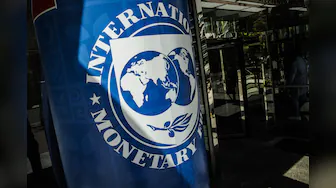Context:
Recently, the International Monetary Fund’s (IMF) Executive Board approved a $7 billion Extended Fund Facility (EFF) for Pakistan.
More on the News
- The $ 7 billion bailout package was approved after Pakistan agreed to overhaul its agriculture income tax, shift some fiscal responsibilities to provinces, and take on the country’s most costly loan, with an interest rate below 5%.
- The first tranche of $1.1 billion is likely to be released by September 30, 2024, and the second instalment is expected to be disbursed during this fiscal year.
- The Executive Board of the IMF concluded the 2024 Article IV consultation with Pakistan and consequently approved a 37-month Extended Arrangement under the Extended Fund Facility (EFF) for Pakistan.
- Article IV of the IMF’s Articles of Agreement, the IMF holds bilateral discussions with members, usually every year.
- A staff team visits the country, collects economic and financial information, and discusses with officials the country’s economic developments and policies.
- On return to headquarters, the staff prepares a report, which forms the basis for discussion by the Executive Board.
- According to the IMF, Pakistan has taken key steps to restore economic stability with consistent policy implementation under the 2023-24 Stand-by Arrangement (SBA).
The Extended Fund Facility (EFF)
- It is IMF’s lending facility established in 1974 to provide financial assistance to countries facing serious medium-term balance of payments problems because of structural weaknesses that require time to address.
- EFF is typically approved for periods of 3 years but may be approved for periods as long as 4 years to implement deep and sustained structural reforms.
Significance of the EFF to Pakistan
- This Extended Fund Facility will provide a critical boost to the country’s struggling economy.
- The objective of the IMF bailout package was to achieve macroeconomic stability.
- It will enhance investor and market confidence in Pakistan’s economy.
- It will promote long-term structural reforms in key areas like fiscal policy, taxation, and market-determined exchange rate.
Also Read:
India becomes third-largest producer and consumer of Ethanol in the world

